In a Crisis, 3’s a Crowd
Great news, everyone!
The U.S. economy is fundamentally solid and the outlook “is a good picture,” at least according to Federal Reserve Vice Chairman Richard Clarida.
The Fed’s vice chairman also touted the U.S.’s labor market — the strongest in 50 years — calling it a “huge positive.” Clarida also said that inflation is holding close to the central bank’s goals.
And, as far as that nasty virus is concerned … the Fed is watching. (That’s honestly what it does best … watch.)
However, what the Fed’s watching and what’s actually happening may be two completely different things. Specifically, two separate analysts came out today to warn that investors greatly underestimate the COVID-19 outbreak’s risks.
The first out of the gate was health care policy analyst Chris Meekings from Raymond James Financial Inc. (NYSE: RJF): “If you see companies come out later in March and say this will impact second quarter too or if you see a big outbreak in the U.S. at some point, I think those could be the triggers that would result in the market really having an adjustment.”
Next up was Peter Oppenheimer, chief global equity strategist for Goldman Sachs Group Inc. (NYSE: GS).
In a note to clients this morning, Oppenheimer dropped the “correction” bomb: “In the nearer term…we believe the greater risk is that the impact of the coronavirus on earnings may well be underestimated in current stock prices, suggesting that the risks of a correction are high.”
So, while the U.S. economic outlook is a “good picture,” the Fed is still watching things develop. And when the COVID-19 situation finally comes to a head, that picture won’t be pretty anymore.
The Takeaway:
Back on January 21, I said that the coronavirus “is a really big deal with the potential to impact markets around the globe.” I warned you then to start preparing for the worst.
I’m glad that some of the financial talking heads are finally echoing the concerns that Great Stuff brought up a month ago! I don’t care if you have “coronavirus fatigue” … you need to take this seriously.
How seriously?
Let’s go to Banyan Hill expert Michael Carr for an answer:
I have a chart that shows a different view of volatility. And it’s not bullish.
In fact, it just flashed a huge warning sign for the stock market.
This indicator gave the same exact warning right before stocks plummeted more than 13% in December 2018.
You’ll notice that Mike isn’t directly talking about COVID-19 here … he’s talking about market volatility. And that volatility is about to turn quite bearish.
You can read more about this crucial indicator in Mike’s latest (and unsubtly titled) article: “WARNING: Major Sell-Off Imminent.”
Now, Michael Carr doesn’t say it, but I believe this shift in volatility is tied to concerns about the virus outbreak. While Wall Street doesn’t seem to want to acknowledge the problem publicly (yet), market makers and institutional investors are clearly worried. That worry has to show up somewhere, and it could manifest in market volatility.
However, what Mike does have to say on the market is still quite chilling: “Despite media headlines about new all-time highs, right now is a terrible time to buy shares.”
But if you don’t buy stock, how do you make money in the market … especially a market that’s headed for a potentially sizable correction?
One word: options.
After Mike’s two-plus decades in the U.S. Air Force, this Renaissance man turned from programming rocket trajectories to crafting even more explosive trading systems.
It’s a trading strategy that puts the market’s volatility in your favor — no matter the direction!
While buy-and-hold investors cower in their bunkers when volatility strikes, Mike jumps into action with incredible consistency.
That’s the best part of following Mike’s trade recommendations: Rally or correction, Mike’s readers still get the chance to land consistent triple-digit gains in any environment … no matter Wall Street’s panic or mania.
Click here to learn how Mike’s strategy could work for you!

The Good: Lick It and Stick It
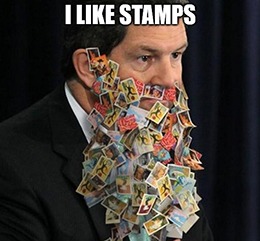
Say … have you heard about stamps? Those sticky things that we put on packages to send via snail mail?
Apparently, stamps are big business again. Just ask Stamps.com Inc. (Nasdaq: STMP). The company announced this morning that fourth-quarter earnings more than doubled year over year, coming in at $2.12 per share. Revenue dipped a bit to $160.9 million but still beat Wall Street’s estimates.
The kicker here is that Stamps.com also set full-year earnings guidance 40% above the consensus estimate. And it’s all thanks to a new postage reselling agreement the company struck with the U.S. Postal Service. Well, that and a few deals it worked up with United Parcel Service Inc. (NYSE: UPS).
The thing is, e-commerce is only getting bigger. Shippers gotta ship, and Stamps.com brings that postage right into your shipping dock. Investors were so excited today, they sent STMP shares soaring more than 50%.
And you thought stamps were stuck in the past!
The Bad: Morgan Munches Merger
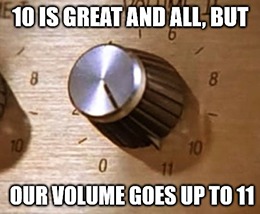
It was just a matter of time. After Charles Schwab Corp. (NYSE: SCHW) gobbled up TD Ameritrade Holdings Corp. (Nasdaq: AMTD), you knew someone else in the discount brokerage market would make a move.
That move came today when Morgan Stanley (NYSE: MS) snapped up E-Trade Financial Corp. (Nasdaq: ETFC) in an all-stock deal valued at $13 billion. MS stock is down more than 3% on the news, while ETFC has jumped more than 24%.
“E-Trade represents an extraordinary growth opportunity for our wealth management business and a leap forward in our wealth management strategy,” said Morgan Stanley CEO James Gorman.
Why’s this bad? Well, I’m hearing a lot of “me, me, me” in Morgan Stanley’s statements surrounding the merger … not a lot of “This will help our customers.” With the advent of $0 trading commissions on stocks and exchange-traded funds (ETFs), it was only a matter of time before online brokers made up the difference with volume and size.
That’s what this merger is about: volume and size.
The Ugly: Six White Flags
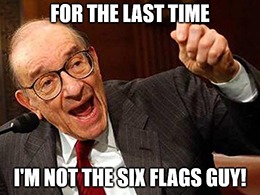
Investors in Six Flags Entertainment Corp. (NYSE: SIX) waved the white flag today.
The theme park operator missed Wall Street’s earnings expectations, slashed its dividend and said that Chief Financial Officer and Executive Vice President Marshall Barber will retire.
By the numbers, Six Flags reported a net loss of $0.13 per share, versus the consensus for a $0.14 profit. Revenue just barely edged out Wall Street’s $260.1 million target, arriving at $261 million.
As for its quarterly dividend … Six Flags trimmed that by nearly 70% from $0.83 per share to $0.25 per share.
And finally, the company’s partner in China defaulted on its obligations for development of Chinese theme parks. So, no new Chinese revenue or profit in 2020 … but at least it doesn’t have to worry about COVID-19 … right?

You jibber, I jabber. It’s time for another edition of Great Stuff’s reader feedback!
This week, we asked about your thoughts on the COVID-19 outbreak and Virgin Galactic Holdings Inc. (NYSE: SPCE). What we got was a bunch of conspiracy theories on the virus — which, as crazy as we are here, we won’t publish — and complete and utter silence on Virgin. I’ll take that last point as a good sign: You’re not interested … nor should you be.
So, what else did Great Stuff readers send in? Let’s take a look:
Crazy, but That’s How It Goes…
You can be crazy and still be correct.
Remember, you’re only paranoid if they’re not out to get you!
Gary W.
You know what, Gary? I like you. You’re not like the other people here in the trailer park. Seriously, though, until Goldman Sachs, Raymond James and our own Michael Carr finally chimed in this week on the market’s perils, I felt like I must be crazy. I must’ve missed something.
Turns out, I was just ahead of my time. Thanks for writing in!
What If I Told You…
You are the one.
Thank you for your email.
Ava F.
Flattery will get you everywhere, Ava. Thank you for your kind words.
Sense and Sustainability…
Fundamentally, TSLA seems way overvalued. The announced dilution didn’t cause a decrease in stock price. Nor has coronavirus news…
Now, you recently had a poll regarding whether or not investors consider environmental impact in their investment decisions. The results seemed to show most respondents don’t really care. However, I have noted a number of relatively new “green” ETFs, and BlackRock recently announcing that it will “make investment decisions with environmental stability at its core.” Apparently, there is a lot of capital flowing into these funds.
So, my question is, in deciding where to invest, how do you balance the poor fundamentals of companies like TSLA versus the apparently large inflows of capital from ETFs, BlackRock and the like? The “hot trend” seems to be directing money to places that fundamentals would indicate it should not go. Will this influx of capital continue to drive up stock prices in these companies, even though fundamentals might not justify the stock price? Do you think these trends are sustainable?
I would love to get into another line of questions regarding possible disinflation/deflation as we observe the interactions between bonds, U.S. dollar and European rates, etc., but I’ll save that for another time.
Thanks for all the great insight and advice that all of you at Banyan Hill provide. You have made a wonderful impact and will never know what a difference you make in people’s lives. Please keep up the great work.
Eric C.
First, a big “how y’all doing” to a fellow Kentuckian! Thanks for reading and for the kind words, Eric. It means a lot.
Second, to your question on fundamentals, valuations and sustainable trends … I don’t think this overall market trend is sustainable. Large capital inflows into ETFs and index funds are part of the problem. But so, too, is the mania gripping Wall Street right now. As I noted yesterday, the market is ignoring significant risks right now that must be dealt with eventually.
Tesla Inc. (Nasdaq: TSLA) is a good example. Why does a stock rally after the company announces $2 billion in share dilution? It doesn’t … under normal circumstances. But this situation is far from normal. Something’s got to give sooner or later.
Now, I like Tesla, and I have a long-term bullish outlook on the company for multiple reasons. But I agree with you that the company is overvalued. What you do with that information is up to you. I’m sure Tesla will make another appearance in Great Stuff soon, so stay tuned.
As for disinflation/deflation, U.S. bonds, yada, yada, yada … if you write in about those topics, I’ll be forced to pull in my good friend Ted Bauman. He’s the expert on those topics.
If you wrote in and I didn’t get to you, it might be because you cursed too $%*?@#! much. I still really appreciate the feedback, even if they won’t let me publish it.
And if you haven’t written in yet … what’s stopping you? Drop me a line at GreatStuffToday@banyanhill.com, and let me know how you’re doing out there in this crazy market.
That’s a wrap for today. But if you’re still craving more Great Stuff, you can check us out on social media: Facebook and Twitter.
Until next time, good trading!
Regards,

Joseph Hargett
Editor, Great Stuff

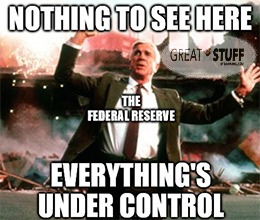
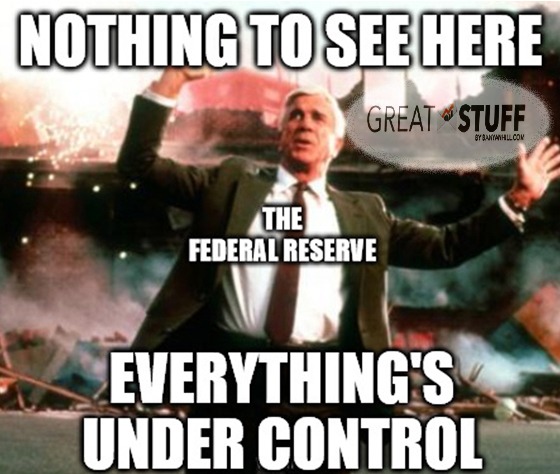








Great content! Super high-quality! Keep it up! :)